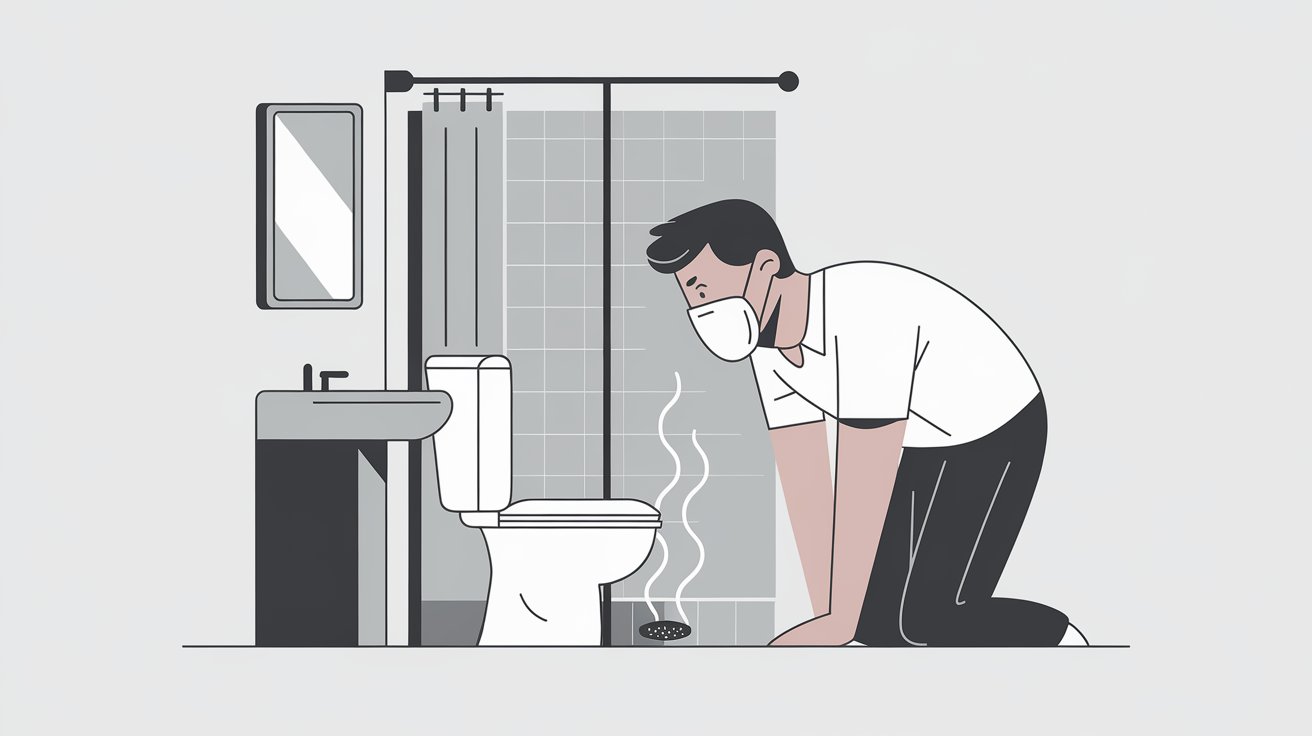Dealing with septic odors can be both unpleasant and frustrating. These smells often indicate an underlying issue that needs immediate attention. Left unresolved, septic odors can disrupt your daily life and potentially lead to costly repairs. That’s why understanding how to identify the source of septic odors is essential for any homeowner.
In this guide, we’ll walk you through the common causes of septic smells, provide practical steps to locate the source, and share tips to prevent future issues. By the end, you’ll have a clear plan to tackle these odors effectively and restore a fresh, odor-free environment in and around your home.
- Understanding the Causes of Septic Odors
- Step-by-Step Guide to Identify Septic Odor Sources
- Preventive Measures to Avoid Septic Odors
Let’s dive in and uncover what’s causing those troublesome odors
Understanding the Causes of Septic Odors
Septic odors are more than just unpleasant—they’re a sign that something isn’t working correctly in your system. Identifying the root cause is the first step toward resolving the issue. Let’s explore some of the most common reasons behind these smells.
Full or Overfilled Septic Tank
One of the primary causes of septic odors is a full tank. When the tank reaches its capacity, gases such as hydrogen sulfide escape, leading to a foul smell. Regular pumping can prevent this issue.
Clogged or Dry P-Traps
P-traps, the curved pipes under sinks and drains, are designed to block sewer gases. If they dry out or become clogged, odors can easily seep into your home.
Venting System Issues
Septic systems rely on vents to release gases safely into the air. A blocked or damaged vent can cause odors to back up into the house or yard, creating a noticeable problem.
Leaking Pipes or Tank Damage
Cracks in your septic tank or leaking pipes can release unpleasant smells into the surrounding soil or air. Such leaks not only cause odors but also pose environmental risks.
Biofilm Buildup in Pipes
Over time, organic material can accumulate inside pipes, forming biofilm. This buildup can trap odors, making them noticeable in your home.
Understanding these potential causes is critical before diving into solutions. By addressing these issues step by step, you’ll be able to pinpoint the source of septic odors effectively.
Step-by-Step Guide to Identify Septic Odor Sources
Now that you understand the potential causes, it’s time to take a systematic approach to locate the source of septic odors. Follow these steps to identify the problem and address it effectively.
A. Inspect Indoor Plumbing Fixtures
Begin your investigation indoors, as plumbing fixtures are a common source of septic odors.
- Check sinks and drains: Sniff around sinks, showers, and bathtubs. Odors here could indicate clogged or dry P-traps.
- Examine toilets: Look for loose seals around the base of toilets, which can allow sewer gases to escape.
- Test for slow drainage: If water drains slowly, it may signal a clog in the system that’s causing odors.
Pro Tip: Pour water into unused drains to refill dry P-traps and block sewer gases.
B. Examine the Septic Tank and Field
The next step is to inspect your septic tank and drain field.
- Check the tank lid: Ensure it’s sealed tightly. A loose or cracked lid can let gases escape.
- Look for signs of failure: Standing water or overly lush grass near the drain field could indicate system overload or leakage.
- Use your senses: Walk around the area and notice any strong odors or unusual dampness.
Caution: Avoid opening the septic tank yourself unless trained, as toxic gases inside can be hazardous.
C. Check Ventilation Systems
Proper ventilation is crucial for a well-functioning septic system.
- Inspect roof vents: Blockages, like debris or bird nests, can prevent gases from escaping properly.
- Notice wind patterns: Strong winds can occasionally blow septic gases back toward your home, amplifying the odor.
- Use a ladder carefully: If you’re comfortable, check vents for obstructions or consider hiring a professional.
D. Investigate Outdoor Areas
Step outside to ensure the odors aren’t originating from external sources.
- Walk the perimeter: Smell the air around the yard, focusing on areas near the septic system or drain field.
- Check for pooling water: Standing water near the septic system is a red flag for leaks or overflows.
- Be aware of weather conditions: Heavy rains can saturate the ground, making it easier for gases to escape.
E. Rule Out Non-Septic Causes
Not all odors are related to your septic system. To be thorough:
- Look for alternative sources: Dead animals in walls, mold, or other household issues can create similar smells.
- Trust your nose: Septic odors typically have a distinct sulfur or sewage-like scent. Other smells might indicate different problems.
Following these steps systematically will help narrow down the source of septic odors, making it easier to address and eliminate them.
Preventive Measures to Avoid Septic Odors
Once you’ve identified and addressed the source of septic odors, the next step is to implement preventive measures to ensure the problem doesn’t return. Proper maintenance and proactive care are key to keeping your septic system odor-free and functioning efficiently.
1. Regular Pumping and Inspections
One of the simplest yet most effective ways to prevent odors is by maintaining a regular septic tank pumping schedule.
- Stick to a schedule: Most tanks need pumping every 3–5 years, but high household usage might require more frequent service.
- Hire professionals: Have your system inspected during pumping to check for cracks, leaks, or other potential issues.
2. Keep P-Traps Wet
Dry P-traps are a common source of indoor odors, but they’re easy to prevent.
- Use all drains regularly: Running water through unused sinks or drains helps keep P-traps filled.
- Add water periodically: For rarely used fixtures, pour a cup of water into the drain every few weeks to block sewer gases.
3. Maintain Proper Ventilation
A well-ventilated septic system prevents gas buildup and keeps odors at bay.
- Inspect vents regularly: Make sure roof vents are clear of debris and functioning correctly.
- Consider vent extensions: If odors linger, extending vent pipes higher can help diffuse gases more effectively.
4. Be Cautious About What Goes Down the Drain
Certain substances can disrupt the bacterial balance in your septic tank, leading to odors.
- Avoid flushing harmful chemicals: Harsh cleaners, grease, or non-biodegradable items can harm your septic system.
- Use septic-safe products: Stick to cleaners and household items specifically labeled as safe for septic use.
5. Protect the Drain Field
Your drain field is a vital part of the septic system, and any issues here can lead to odors.
- Limit heavy traffic: Avoid parking vehicles or placing heavy equipment on the drain field.
- Monitor landscaping: Ensure trees or shrubs are planted far enough away to prevent roots from damaging pipes.
6. Schedule Routine Maintenance
Partner with a septic system professional to establish a long-term maintenance plan. Here is what to consider in a maintenance plan.
- Inspect annually: Regular inspections can catch potential problems before they cause odors.
- Invest in treatment solutions: Enzyme-based treatments can help maintain bacterial balance and prevent clogs.
Pursuing these preventive measures, you can protect your septic system from common issues and enjoy an odor-free home. Staying proactive not only prevents unpleasant smells but also extends the life of your system and saves money in the long run.
Septic odors are not just unpleasant; they often signal underlying problems that need attention. By learning how to identify the source of septic odors, you can tackle the issue head-on and prevent it from escalating into a more significant problem.
From inspecting indoor plumbing and septic tank components to addressing ventilation and environmental factors, this guide has outlined practical steps to pinpoint the cause of septic smells. Taking preventive measures, like regular maintenance and mindful use of your septic system, can keep odors at bay and ensure long-term efficiency.
If septic odors persist despite your efforts, consider consulting a professional to assess the system thoroughly. For more tips on septic maintenance and solutions, check out our guide to septic tank treatments for reliable ways to keep your system functioning optimally.
Act now to safeguard your home and environment from unwanted septic smells!
DIY Septic Tank Installation: A Complete Guide for Homeowners
Directory | Washington Septic Service Providers | Part 2
Directory | Washington Septic Service Providers | Part 1
DIY Repairs Are Always Cheaper
Septic Regulations in Rural Areas: Essential Guide for Rural Property Owners
The Role of Perforated Pipes in Drain Fields








